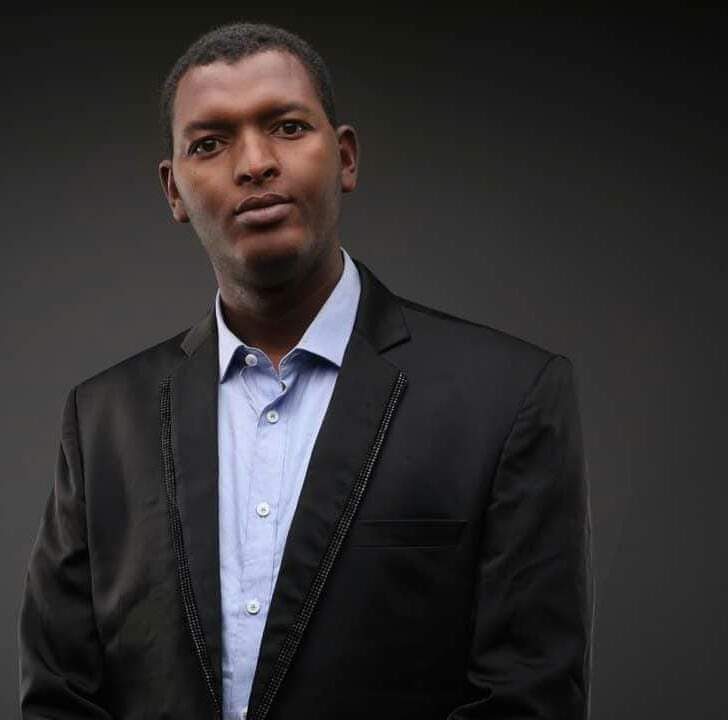"الحديث عن تطوير كليات الصحافة لا يتوقف، والجدل حول أفكار التطوير يتنامى بين إغلاق كليات الإعلام ودمجها مع تخصصات أخرى، وبين تغيير مناهجها لمسايرة التغيّر السريع في الصناعة الإعلامية".. بهذا الاستهلال لخص الباحث في مؤسسة "بوينتر" الإعلامية هاورد فينبيرغ الحالة التي تعيشها كليات الصحافة والإعلام.
الدراسة الأكاديمية في الصحافة والإعلام جديدة في تشاد، إذ تم افتتاح أول قسم عربي للصحافة والإعلام في كلية الآداب والفنون بجامعة الملك فيصل في تشاد عام 2012، ضمن شراكة بين المعهد العالي في أبشة والهيئة الوطنية للإذاعة والتلفزيون، تحت إشراف وزارة الإعلام التشادية، على خلفية أزمة ظلت تواجه الوزارة والهيئة العليا للسمعي البصري لسنوات عديدة وتتعلق بضعف الكوادر البشرية المتخصصة في الصحافة والإعلام.
لا يختلف الحال كثيرًا في قسم اللغة والإعلام بكلية الآداب والعلوم الإنسانية في جامعة مندو، وقسم الصحافة والإعلام بكلية الآداب والفنون في جامعة الملك فيصل، حيث المناهج لا تعكس متطلبات سوق العمل.
من المفارقات أن الأخير لم يكن لديه مساقات تخصصية -بالرغم من أن المقرر تم اعتماده في مصر بحسب يوفيدي المحاضر بالقسم- حتى العام 2017، إذ بعد تخريج الدفعة الأولى بدرجة الليسانس، اتجه القسم نحو التخصص الدقيق وفتح ثلاث شعب: الصحافة، والراديو والتلفزيون، والعلاقات العامة والإعلان.
بلا معايير
يقول إبراهيم أبوبكر أستاذ الصحافة بجامعة الملك فيصل في تشاد لمجلة "الصحافة" إن "القبول في قسم الصحافة والإعلام لا يتطلب شيئا سوى إجراء روتيني يخضع له كل الطلاب الذين يقدمون ملفاتهم في هذا التخصص، وهو عبارة عن اختبار شكليّ للتأكد من مدى إلمام الطالب بالمعلومات الجغرافية والتاريخية في وطنه. لذلك ليست هناك معايير قبول واضحة، في حين أن الطالب في القسم يدرس مقررا عاما غير متخصص إلى أن ينتقل إلى المستوى الثالث قبل الأخير، وحينها يتم توجيهه إلى التخصص الذي يناسبه".
على مدى هذا العام، بدأت الحقائق المخفية عن كليات الصحافة والإعلام في تشاد تخرج إلى العلن بشكل مدوٍّ، عبر الفضائيات والإذاعات ومنتديات الشباب، الأمر الذي أثار حفيظة الطالب خالد حامد المقيد بالسنة الأولى ودفعه للتساؤل: ما علاقة مقررات المرحلة الثانوية بالإعلام؟ لماذا لم تهتم الجامعة بالجانب التطبيقي؟ كيف يكون مصيرنا بعد التخرج؟
الصدمة الأولى
كانت الساعة تشير إلى العاشرة صباحا، والساحات خالية كأنها لم تسكن بعد، والصمت مهيب ومخيب للآمال.. يبدو من الوهلة الأولى أن الكلية تعتمد أسلوب التلقين.. الوضع غير معهود في كليات الصحافة والإعلام، فلا معامل ولا مخابر، وهو ما يؤكد خلوّ القسم من وسائل التدريب والتمكين الإعلامي.
هذا الوضع يعبّر عنه طالب السنة الثانية: "التحقتُ بهذه الكلية لأني شغوف بالتصوير.. لم يكن أمامي خيار آخر غير هذه الجامعة، لكن للأسف صُدمتُ عندما وجدت أن المنهج الذي ندرسه بعيد عن التخصص، وقديم بالمقارنة مع تطورات واقع العمل الميداني"، قبل أن يضيف "الأمر الذي يهمُّنا كطلبة إعلام هو التدريب العملي وهو معدوم تمامًا، بل عندما نبادر بأنفسنا إلى الالتحاق بالمؤسسات كمتدربين، لا تمنح لنا رئاسة القسم الخطابات التي تسمح لنا بولوج تلك المؤسسات".
يقرّ حسب الله مهدي نائب رئيس الجامعة المكلف بالتعليم في تصريحه لمجلة "الصحافة" أن "هناك مشكلة في ضعف الجانب التطبيقي، ودرسنا الأمر واعتمدنا خطواتٍ عملية بحيث يتم التعاون مع وسائل الإعلام المحلية المختلفة لتدريب طلاب الفرقة الثالثة". ويستطرد في السياق نفسه "يبقى المطلب الأهم هو أن تتوفر لدى الجامعة مؤسسات إعلامية تابعة لها مباشرة (إذاعة وتلفزيون وصحيفة) حتى يتمكن الطلاب من استكمال تكوينهم وتأهيلهم نظريا وعمليا".
لكن الطالبة بالسنة الرابعة عائشة صالح تقول للمجلة "منذ التحاقي بكلية الآداب، قسم الصحافة والإعلام عام 2017، لم أشعر بأني طالبة إعلام، ببساطة لأننا لم نمارس أي شيء، والجامعة تتجاهل الجانب التطبيقي في الدراسة، بالإضافة إلى أن نصف المواد التي ندرسها لا علاقة لها بالتخصص، فضلا عن أن الأساتذة المتخصصين الذين لديهم القدرة على توصيل المعلومة قليلون جدًّا، ولا تتجاوز نسبتهم 40%".
أقل ما يمكن أن نصف به كليات الصحافة في تشاد بأنها مراكز لتسليم الشهادات، أكثر من كونها مساحات للتكوين والتحصيل المعرفي، وهو ما انعكس بوضوح على أداء الخريجين.
فقد أظهرت دراسة مسحية أجريتُها في وقت سابق -ضمن مشروع "زمالة الجزيرة"- على عيّنة عمدية شملت 26 خريجا من مختلف كليات الصحافة في تشاد بين عامي 2015 و2020 حول تقييم المستوى التكويني لكلياتهم، ضعفَ المناهج التعليمية بنسبة 100% (كما هو مبين في التحليل الإحصائي)، وهو ما يفسر ضعف الإعلام التشادي، ويستدعي -بالتالي- ضرورة مراجعة المناهج وتطويرها وفق متطلبات سوق العمل.
الخريج في المشهد
الجميع هنا يحاول أن يصبح إعلاميا، ولكن في مقابل ماذا؟
سنوات من الضياع داخل بلاط صاحبة الجلالة، في ظل انكماش الاقتصاد الوطني وارتفاع نسبة البطالة في أوساط المجتمع.
مع اجتياح عاصفة كورونا، أضحت الحاجة ملحة إلى كوادر إعلامية متخصصة تتوفر على مهارات ومعارف في إنتاج قصص صحفية معمقة تعكس الواقع، خلافا لما يروج له في المواقع.
يقول أحمد إعلام -وهو خريج الدفعة الأولى في جامعة فيصل- "ليس هناك ما هو أكثر وجعا من أن تظل خمس سنوات دون عقد عمل بعد التخرج.. بدأتُ أجرّب كل الخيارات المتاحة، إذ قضيتها متدربا في الهيئة الوطنية للإعلام السمعي البصري.. كثرت الوعود بعقود العمل، وطال الأمد ولم نعثر على شيء حتى اليوم".
لقد أجبر هذا الواقع بعض الخريجين على مغادرة البلاد بحثا عن ملجأ آمن. أحد هؤلاء محمد آدم الذي غادر العاصمة إنجمينا صوب باريس مؤخرًا، ضمن بعثة طلبة وزارة الإعلام.
تحدث آدم لمجلة "الصحافة" عن تعنت السلطات وحرمانهم من حق التوظيف، وقال: "تخرجنا من كلية أم درمان لتكنولوجيا الصحافة والطباعة عام 2015، ثم عدنا إلى البلاد في العام نفسه بمعنويات وهمم عالية.. كانت لدينا رغبة أكيدة للعمل والمساهمة في تطوير الإعلام الوطني، ولكن لا حياة لمن تنادي.. وكانت النتيجة أن بعضنا التحق بالتلفزيون والإذاعة الوطنية كمتدربين، والبعض الآخر رفض العمل تحت خدعة التدريب دون أجر".
ويختصر آدم أزمة الخريجين من كليات الصحافة قائلا: "فور وصولنا إلى تشاد كلفنا لجنة لمتابعة ملف التوظيف، حينها كان حسن سيلا وزيرا للإعلام، وهو من أطلق برنامج بعثة طلبة الإعلام باللغتين العربية والفرنسية كمنحة حكومية في كل من السودان والنيجر والكاميرون.. أجرينا عدة مقابلات مع المعنيين بالتوظيف، لكن في نهاية المطاف تم إقصاء المتعرّبين وتوظيف الفرنكفونيين.. لم نجد حتى الآن ما يبرر هذا الفعل، فقد مرت أكثر من خمسة أعوام بوعود كاذبة، وهذا ما جعلنا نهاجر إلى أوروبا. والغريب أن الدفعة الأولى بجامعة الملك فيصل ما زالت تنتظر قرار التوظيف.. هذا الوضع غير آمن".







































